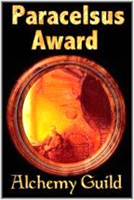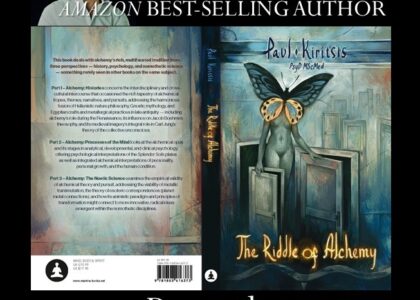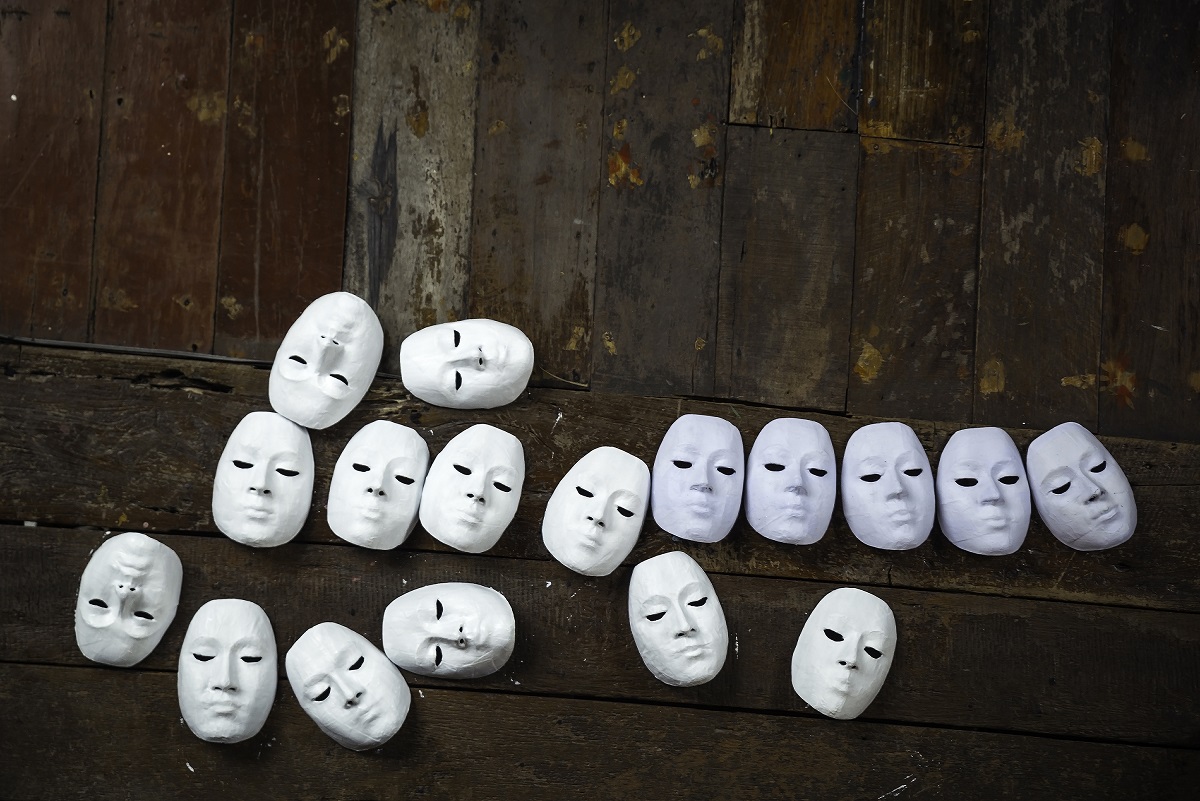
Many ancient creation myths speak of a time when nothing existed save for an interminable sea of possibilities called primeval chaos. But what exactly is primeval chaos? If we look at mythology from a cosmological perspective then it has to be the state of affairs in our universe before the “Big Bang” or whatever phenomenon it was that caused the prototypes of everything that has been, is, and shall be to sprout into being. It might also be that giant body of psychic water called feeling and intuition that comprises the unconscious processes of the mind for without it the conscious cannot rise from the cavernous depths and form the earthy foundations of the personal ego i.e. thought and action. Then again it might be both, given that inner and outer processes in the cosmos are linked by correspondence and reflect one another indefinitely. Whatever the level of interpretation one cannot deny that bubbling beneath the thought and perception that have accounted for verbal reasoning and societal-building consciousness lies something of an embryonic, homogeneous, ambiguous, and unreliable intelligence called feeling. Feeling is the internal sea within us with ebbs and flows; it utilizes a non-verbal and implicit language equipped with a full spectrum of sentiments to guide and accompany the formation of thought and action.
For the most part, the intelligent, evolved, distinguished, and verbally-defined ego of ours tends to see the subjective, non-practical side of our own internal composition in the realm of feeling and emotion as too timid, shy, and unsure of itself. Sure, it may rear its head through pockets of consciousness occasionally, but generally it’s way too unpredictable for its own good and it rarely, if ever, submits to quantification at the hands of our five physical senses and judgment on behalf of conscience. Feelings are foolish little vibrations that can create unnecessary angst, inject themselves into individuals in unusually high doses that become dangerous to oneself and one’s peers, and rudely abolish the fundamental unity between different aspects of Mother Nature’s creation. To add to that they have a way of distorting rationality by facilitating false impressions about things and influencing personal values as to create negative beliefs about the nature of existence. When feelings are not kept in check by the intellect they create short-sighted vision in an individual that keeps him or her chained to the Caucasus of trivial values. Somebody that becomes infatuated is not enslaved by that individual to whom their physical desire has been projected but by the concentrated power of their own unchecked emotions which have usurped reason and fabricated an objectified desire that appears at first to be insurmountable. Likewise the powerful identification with ethnicity or race prevalent in many countries around the world nowadays is also the spawn of feeling; in modern times, the propensity for people to get caught up in communal realities subjectively coloured by political qualms shows to what extent raw feeling has blinded rationality and allowed the collective conscious to become riddled by nihilism, misunderstanding, and hostility. Similarly, the scientist who shuns evidence that might contradict his prevailing archetypal model for understanding the phenomenal world is also guilty of emotional conviction.
For the inner processes to maintain their balance and harmony, feeling or emotion must remain subordinate to the will of the intellect. An inversion of the pair means a return to the primordial state of chaos and insecurity. Perhaps this is why public exhibitions involving overt feelings and emotions have been stigmatized as unbecoming and symptomatic of a weak and flawed personality by established societal conventions in the West. In fact, in its millennia-long bid to subjugate woman our Western civilization nurtured gender-specific perceptions about the intellectual and emotional worlds; clearly demarcated, ideal, and balanced, the former had to be masculine whilst the abstruse, mercurial, and half-formed features of the latter betrayed an obvious feminine nature. This speculative philosophy served to vindicate Biblical lore which identified women as a secondary and inferior creation to men by portraying Eve as a bone plucked from the ribcage of Adam. In any case the suppression of an underlying realm that supports the foundations of our conscious processes has been detrimental to our cause, severing our collective psyche from its natural roots in the unconscious and destroying the fundamental harmony between by-products of mind recognized as language and civilization and a rudimentary part of the inner process that connects us with nature and the cosmos. As you would expect the consequence of such alienation is mental and physical illness.
So what exactly then is feeling? To put it simply it is the psychic current that illuminates the meaning and direction of one’s inner inclinations. When we permit these trends to form behavioural patterns that dictate the manner in which we live our lives we experience a profound sense of freedom for we have aligned with the fundamental harmony within our own being. The unconscious will that drives one forward and the concept of freedom cannot be separated from one another. In actual fact they’re one and the same thing. Lying dormant within the human being is an unconscious will to replicate many parts of his or her nature, including the kernel of love. Nobody is born without an innate capacity and propensity to feel passion, desire, and a longing to unite with another sexually. These are the psychic garments in which we are dressed before our incarnation on the physical plane. The truth of this hypothesis needs no further substantiation at the hands of scientific inquiry for its effects are clearly discernible when one glances at the history of the human condition.
What has happened, for instance, when ascetic trends of abstinence from sexual contact have been imposed on individuals by dogmatic religions wishing to keep a stranglehold on what can only be described as a self-proclaimed and attempted monopolization of political and secular sovereignty? The immense psychic pressure built up by an inner process whose natural mode of being is confined in a bottle of convention and is therefore unable to express itself fully and voluntarily will eventually manifest in one’s conscious experience as a wealth of irrational impulses, fantasies, and obsessions. Some can explode outwardly with such force as to create impressions that they are not within the individual’s customary range of behavior. How many times have we heard people say, “That wasn’t me who said that” or “Sorry, I didn’t really know what I was doing”. What these phrases actually suggest is that the unconscious has intruded upon the conscious experiences of the individual. Though the individual may feel that they are not capable of particular thoughts and actions, the inner process is in fact pointing out that they are very capable of them. In truth these intrusions embody vital trends exclusive to the individual’s inner nature. The more one fights and adopts attitudes and behaviors at odds with the inner life, the more prone they’ll become to persistent temperaments that take on a life of their own by flowering into compulsive acts. Freedom of choice is only an option when we remain attuned to the musings and whisperings of our internal compositions. In listening to them we harness magical powers, fulfill our psychic potential, and become all that our inner anatomy has allowed for us to be. On the contrary if we choose to ignore them and limit ourselves to a self-conception and understanding of reality that is too tunnel-visioned for our inherent potential, archetypal contents will pour themselves into the vessel of conscious life and announce that something is very wrong. Persistent failure to acknowledge and correct these inner obstructions leads to neurosis, emotional volatility, and eventually psychosis. Ultimately the decision to listen rests upon the shoulders of each individual but the dire consequences of not listening cannot be stressed enough.
Re-establishing contact with the inner process of feeling and using it to orientate oneself to the trajectory of one’s inner psychic trend is as uncomplicated and simple as taking a coordinated stroll in the botanical gardens nearest to you. The only thing you need is some time and a healthy dose of fantasy. Carl Jung called this very effective form of psychotherapy active imagination and used it quite liberally to treat many of his mentally disturbed patients. It entails projecting a feeling that comes to oneself in a state of relaxed perception and letting that little ditty bit of detail expand into a full-fledged fictional drama. Your innermost desires and aspirations are stored in the memory bank of feeling and the secret to unlocking these inner directions to personal happiness and fulfillment is to let them unfold without censorship and acquire life through fictitious inner scenery. Allowing any such sensation to augment into a fantasy sheds light upon conditions and situations that have run rampant in one’s life yet have remained unacknowledged by the personal conscious. Hence active imagination is an effective diagnostic tool of psychological health, particularly when an individual is experiencing periods of uncertainty and low morale.
A level-headed, middle-aged woman has been putting in long hours at the office because her company is nearing the launch of a new multimedia product. If the business venture is a success she will be promoted to the position of general manager. But her professional ambition has forced her to neglect painting canvases–a favorite pastime through which her inner creative potential has always found voice. One night, whilst working laboriously on the promotional agenda, she begins to experience an excruciating bout of eye strain. She decides to take a short break and slumps onto the reclining chair near the fireplace. Intending to rest her eyes for a few minutes, she closes them and employs a method of controlled breathing to rid her body of accumulating stress. The tension in her head, neck, and shoulders and along the length of her back is piercing and ubiquitous. She wishes she could just scrape it off like a healed scab. There is a swift change of scene in her mind and she is suddenly bathing in a mountain spring on a moonlit night. Beside her is a multitude of nymphs and satyrs. Some of them are holding oversized ceramic jars that are the same color as the moon. “What’s in the jar?” she asked them. “We’ve brought you moon milk from our mother,” replies the nymph closest to her. ‘She heard your distress signal from across the sea, your SOS, and sent us to you. She wants us to poor it all over you so that you may be cured of premature aging.” The woman looks at her skin and notices discolored blotches and wrinkles. She inwardly agrees with their assessment and kneels with her head tilted backwards, ready to receive the moon milk. The sensation of being doused in it is so titillating that she is rudely jolted from her reverie. Suddenly, it dawns upon her how exhausted and undernourished her profession has left her. In the next week she intends to correct this dismal oversight by spending a full day spoiling herself. She will enjoy a spa treatment with rose-scented incense and sparkling champagne, a Swedish massage, and a hot bubble bath. After that she’ll retreat into the privacy of her personal studio and paint the very vivid vision she just had. It would make a great canvas for a local gallery. Maybe she should also get on the eHarmony dating site and look for a new and exciting lover. It’s time to shift gears and look after noumero uno for a change, she tells herself.
In this case the sensations and images that bubbled up first in active imagination were those that the woman’s inner life needed most to re-establish harmony between the interior and exterior life. The fantastical transition to a tranquil, sensual, and dramatic scene where she is cast in the role of a sick mortal waiting to be healed by higher powers reflected the present condition of her psyche. It appears that the degree to which her professional ventures had exhausted her and removed her from her natural inclinations were known to every level of reality save for her own contracted consciousness. By internalizing physical ambiences through guided fantasy she gained direct insight into her own situation. Using a cleverly defined symbolic language, her own self brought to her attention the extent of her fatigue and offered possible solutions that were in synch with her innate values and affinities. The way out of her predicament was to groom herself; to reunite with the creative endeavors that expressed her inner being; and to spend time exploring a sexuality that had been forsaken of late.
Nobody knows you as well as your inner self; not even your own mother. It is your dearest friend, guardian angel, spirit double, and greatest ally all in one! Learning how to listen to its highly codified and symbolic psychobabble will bring you degrees of freedom that many yearn for but sadly never experience. Moreover it should also be noted that the propensity to go “walkabouts” or on guided fantasies is rife when we’re children but they seem to diminish and eventually pinch out during the latter part of our formative years. Children seem to act out the inner lives habitually whereby internal dispositions are projected onto the external world with a conviction seldom seen in full-grown adults. The propensity to do so bequeaths them a liberation and contentment that, once lost, is looked back upon with nostalgia as a Golden Age against which all other experiences in life might be equated. Did Jesus not tell his disciples that, “Truly I tell you, unless you change and become like little children, you will never enter the kingdom of heaven.” No truer words have ever been spoken. If you wish to experience the joy of paradise, you must show unconditional love for the nature of your own self and your natural inclinations. The aforementioned example illumines some very basic benefits of getting to know that inner self via active imagination. By engaging it one can gain insight into the origin of a particular mood, feeling or person; discover aspects of one ’s self that have remained hitherto latent in the psyche; and draw a host of body sensations into the inner realm so that the fantasy-images that arise reveal something palpable about the inner life of the individual. Don’t ignore or forsake it, for its potential is explosive and you’d much rather explode into the world of fame and fortune than have your brains scrambled inside the whitewashed walls of a madhouse.








